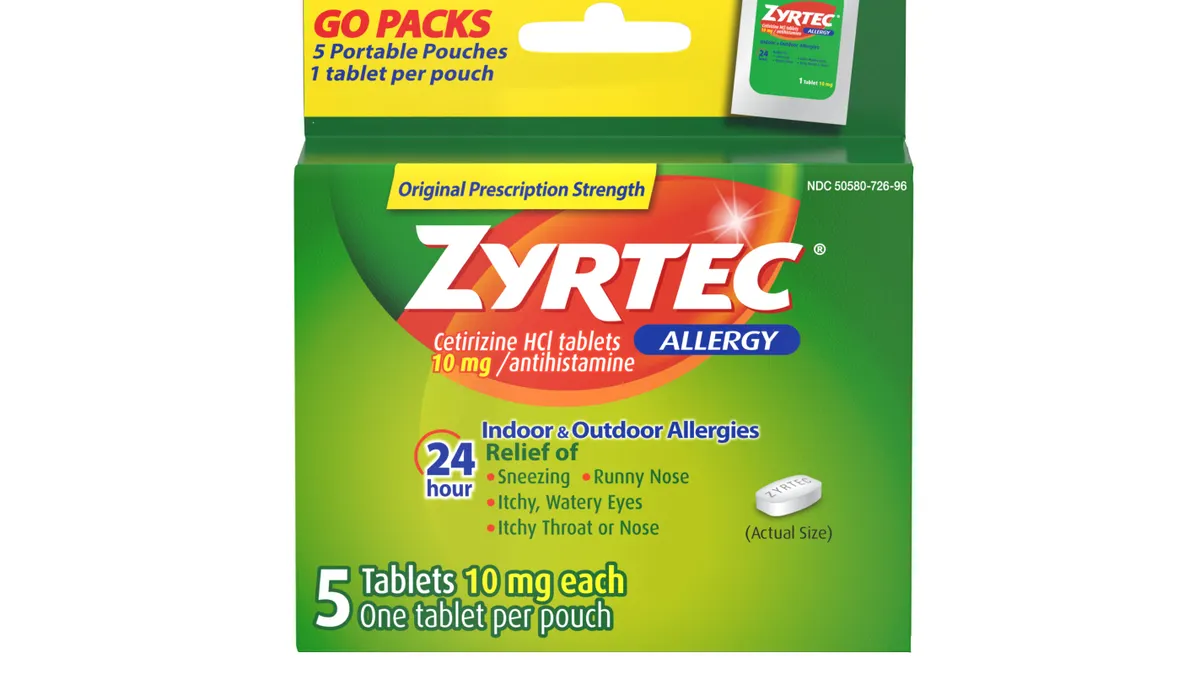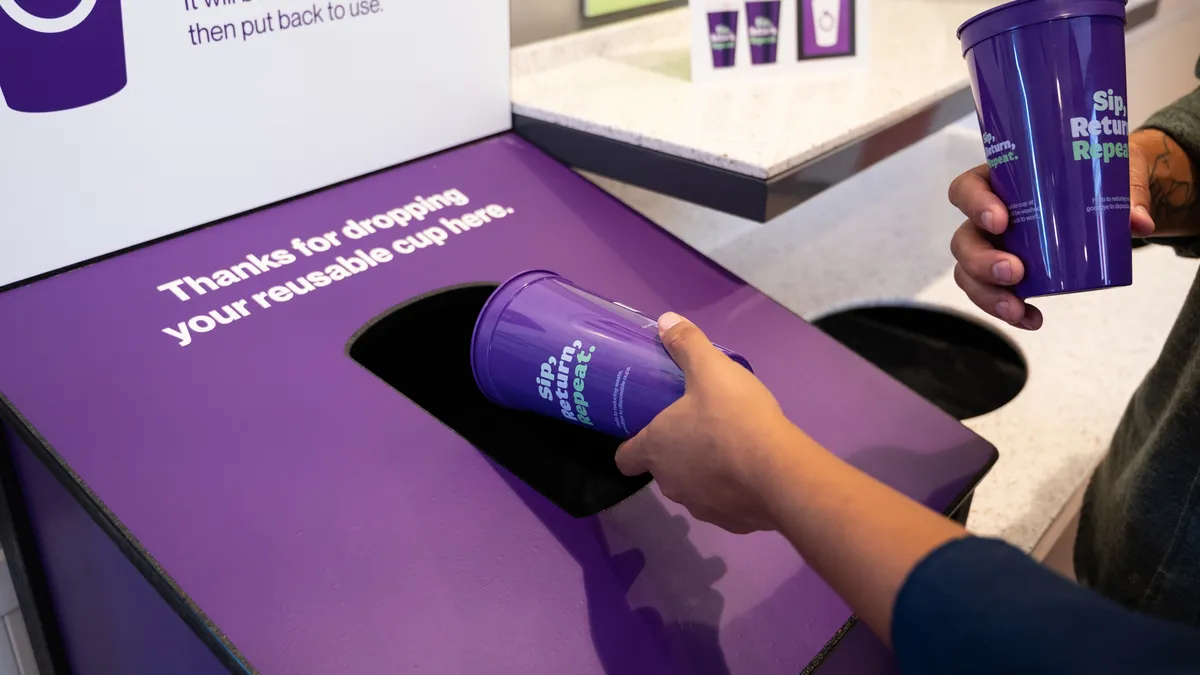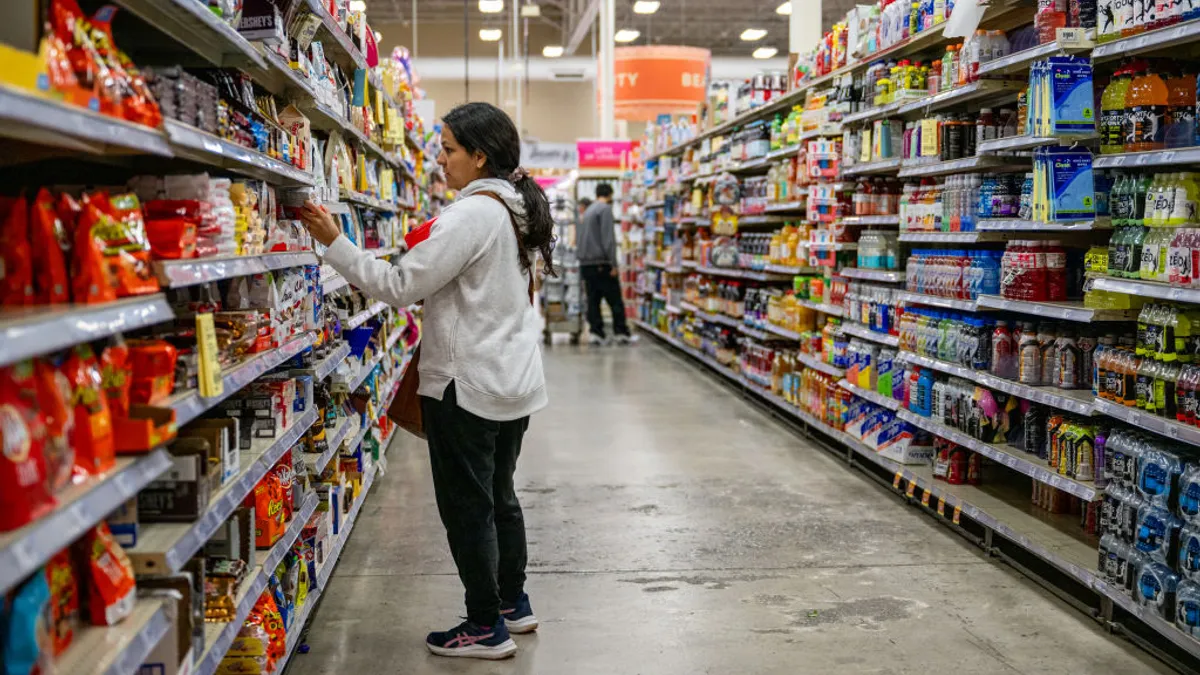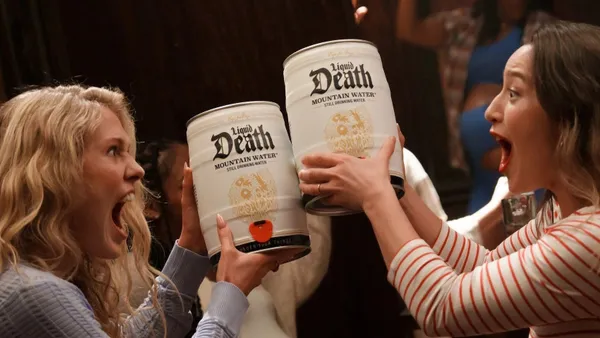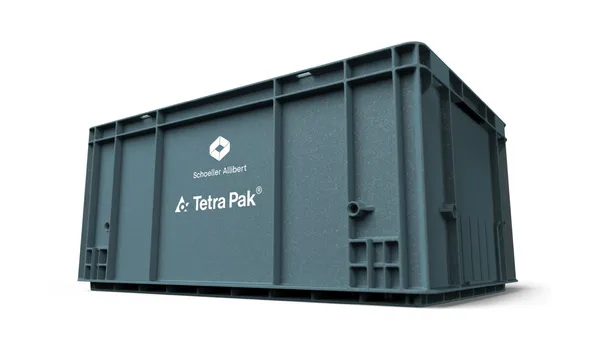Companies constantly innovate and redesign their packaging to boost performance, improve marketability and enhance sustainability. Here’s a look at six packaging launches and revamps on Packaging Dive’s radar.
Nothing to sneeze at
Allergy medication brand Zyrtec switched up its outer packaging — not just as part of a visual refresh, but also to eliminate plastic. Instead of having a blister pack, the outer carton is now 100% paper and recyclable, according to the company.
The new flat-front design arose from four years of consumer research, said Jenn Lovell, head of U.S. allergy at Zyrtec parent company Kenvue, via email. This design should help the product stand out more on store shelves, she said. The text also is larger than on the previous packaging to enhance readability.
“As we continue to advance in science and innovation, it’s important for the packaging to reflect this commitment and meet the evolving needs of our consumers," Lovell said.
Adding aluminum

Saint James Iced Tea launched a new packaging format for its beverages: aluminum bottles. All six of the brand’s signature flavors are available in the 16-fluid-ounce bottles, a spokesperson said via email. The company touts the aluminum’s recyclability and says it is the first iced tea brand to introduce resealable aluminum bottles.
These bottles will be offered in addition to fiber-based cartons, the brand’s previous packaging format, the spokesperson said.
“We wanted to remain portable and resealable, but saw an opportunity to provide a more refreshing experience to our customers — by keeping our products colder and flavors fresher, for longer,” said Brad Neumann, Saint James co-founder and co-CEO, in a statement.
The new bottles launched online Wednesday and will roll out at major grocery and retail stores nationwide over the next several months.
Can plan

A different kind of can comes from Sonoco, which officially began production this month on a three-piece plastic can, a spokesperson said via email. The food-grade, monomaterial polypropylene can is designed to be recyclable where infrastructure is available, the company says.
Each molded plastic can is 2.75 inches in diameter and 0.94 inches in depth. It has two separate moisture-resistant compartments and is stackable. Sonoco said it designed the product to address challenges it heard from customers, especially those in the energy, coffee and tobacco manufacturing sectors.
The three-piece cans are manufactured at the company’s plant in Forest City, North Carolina.
Bearing fruit
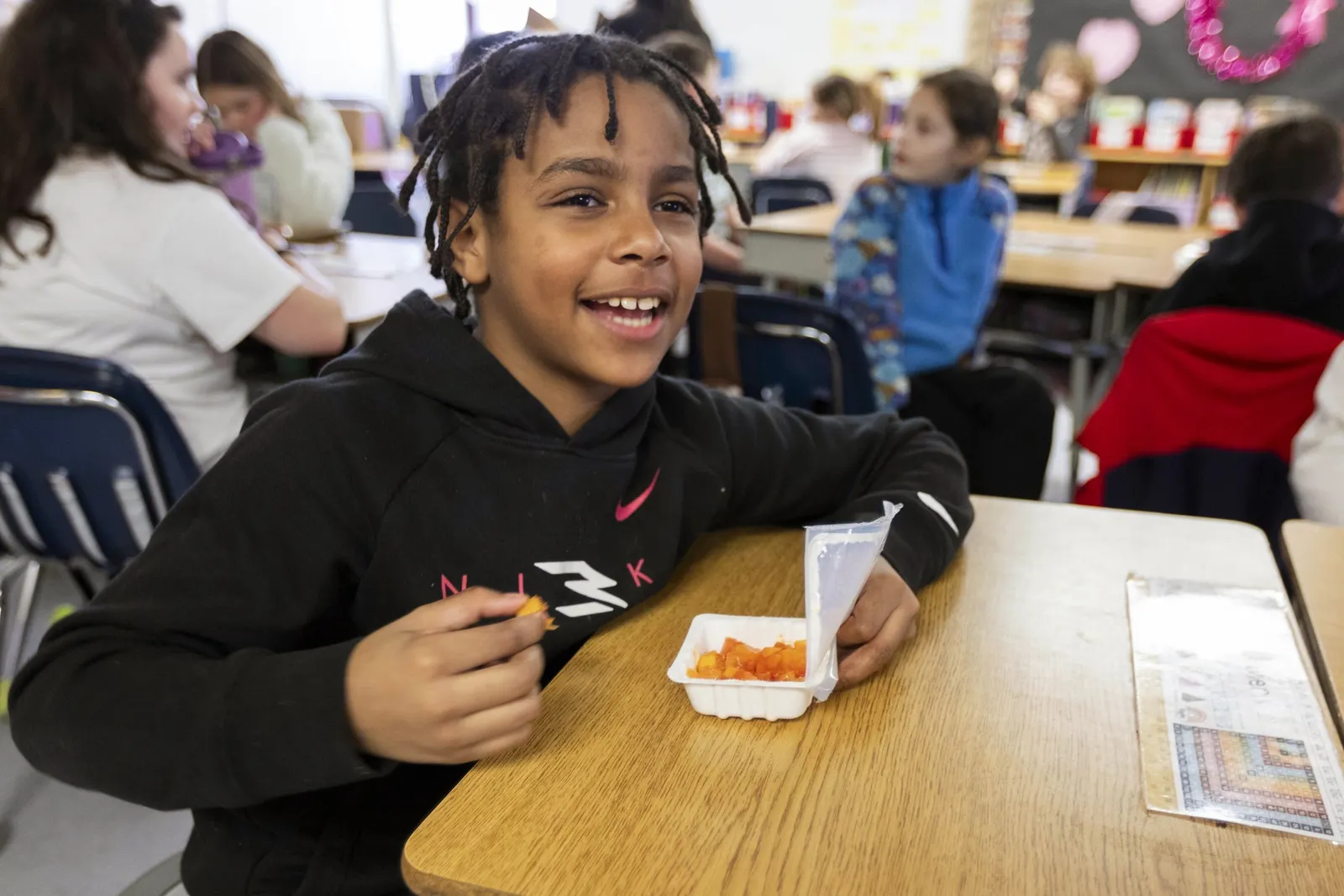
Food service packaging company Eco-Products and produce distributor DNO Produce collaborated on a food cup and lid that is compostable and designed specifically for use in K-12 schools. The containers are made to hold food such as cut fruit or vegetables.
The 4-ounce molded fiber cup is sealed with plant-based lidding film. The cup is BPI-certified compostable, and the plant-based lidding film meets ASTM standards for compostability, according to a news release from Eco-Products, a Novolex company.
“Our transition to more sustainable packaging is the culmination of a multi-year effort to align our operations with our sustainability goals,” Alex DiNovo, DNO's president, said in the news release.
Playing it cool
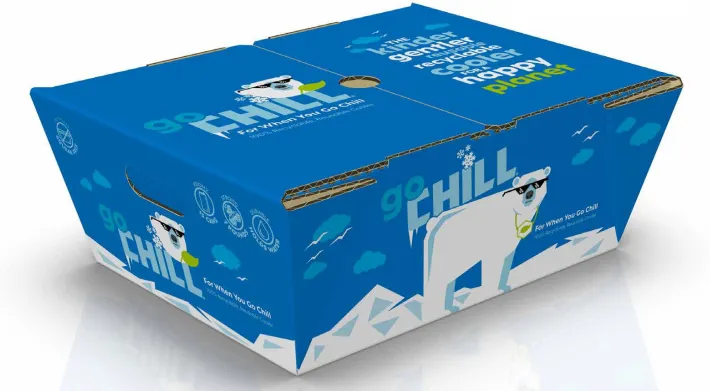
DS Smith is helping consumers chill out with a fiber-based cooler that’s an alternative to plastic and foam options. The GoChill Cooler is made from wax-free, corrugated board, and it’s reusable and recyclable, according to the company, which International Paper acquired in January.
The cooler uses DS Smith’s GreenCoat technology, a coating that makes the fiber moisture resistant, and is suitable for use outdoors, the company says. The product provides the same cooling efficiency as competing coolers but has a lower environmental impact, according to DS Smith.
The beauty of fiber
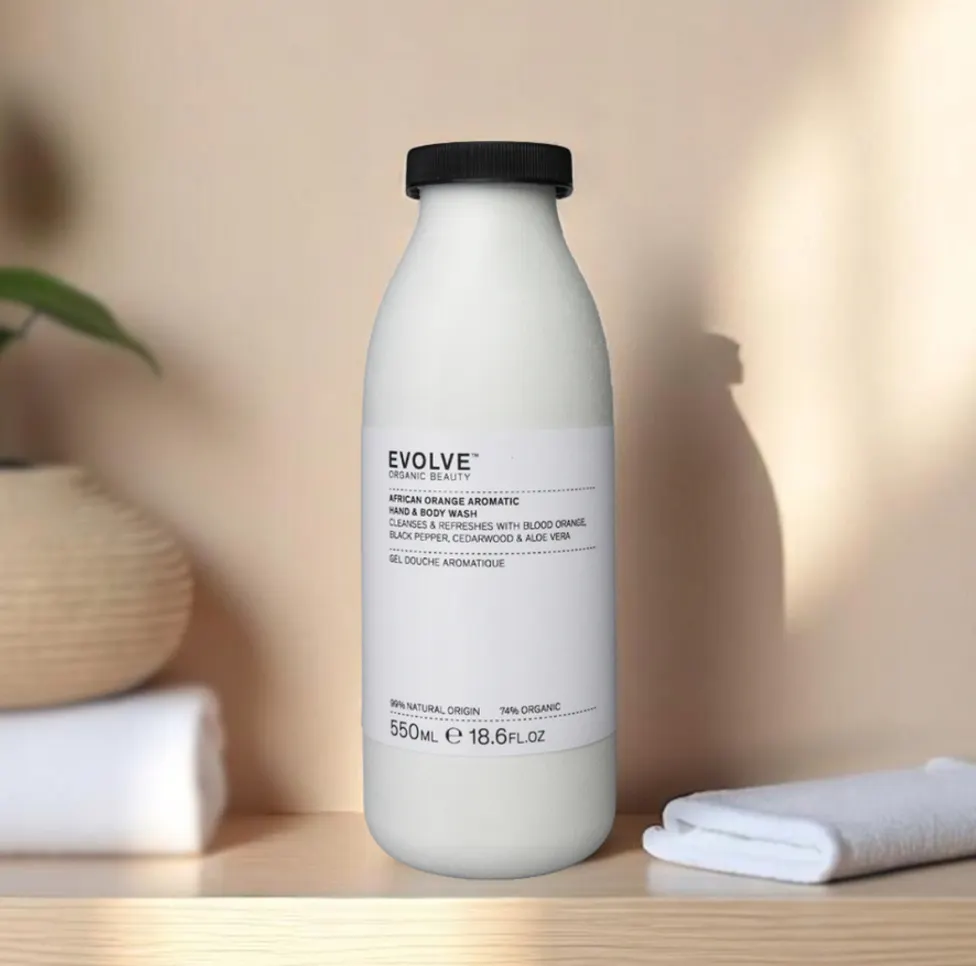
Pulpex worked with British brand Evolve Organic Beauty to bring its fiber-based bottles to the commercial personal care space for the first time.
Two shower products — a shampoo and a hand and body wash — will be available in 550-milliliter, refillable fiber-based bottles. Allowing customers to refill the bottles at home reduces packaging waste, according to Pulpex. The containers also can be recycled in paper and cardboard streams, the company says.



